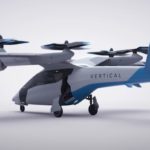With the airline industry facing its biggest crisis, FINN editor-in-chief Alan Peaford takes an in-depth look at how the pandemic is affecting the global training industry
With travel bans and restrictions still in place, the airline industry has virtually collapsed under the strain of the COVID-19 pandemic.
In turn, the world of pilot training has also faced its biggest crisis in history. The cost of training for a career as an airline pilot can be in excess of $130,000 (£94,660) and in most cases cadets – or their families – have to stump up the cash. We spoke to training organisations operating across the UK, Spain and the Philippines and met cadets who had begun their training as lock down began.
“There aren’t any jobs”
Wendy Pursey, Head of Membership and Careers at BALPA, the British Airline Pilots Association gave a stark warning to anyone considering a career as a pilot: “Don’t begin pilot training – there aren’t any jobs.”
BALPA said there were currently around 10,000 unemployed commercial pilots across Europe, including 1,600 in the UK. Pursey added that many others were working part-time or on reduced pay. “EasyJet trainees now had no clear route to even a licence, far less a job”, she said.
“Even once this pandemic is over. In this situation, it would be irresponsible if we did anything other than warn you not to enter flight training right now, especially given the huge training costs involved. For those of you considering leaving paid employment to complete your flight training, it would be very prudent to reconsider such action at this time.”
Retirement bulge won’t disappear with COVID
But Anthony Petteford, Managing director of Cambridge-based VA Training said BALPA clearly wanted to support their members, but argued there was a longer-term case for continuing developing new airline pilots.
He said: “The shortage of airline pilots prior to the COVID crisis was made up of two key factors number one, the baby boomer retirement bulge. And, without doubt, those pilots continue to age and secondly, the absolute increase in hulls entering the global market.
“If I just talk about the retirements alone, prior to COVID, the training industry was struggling to meet the demands simply due to part of retirements. Now, as a result of going through this COVID crisis, in fact, more pilots have elected to retire. So in fact, the retirement situation is probably more challenging after COVID than it was prior to COVID in terms of absolutely growth.”
Pilot demand recovering in Asia
The demand for pilots is already showing some signs of recovery in Asia, according to Alpha Aviation’s Bhanu Chaudrie. The company, based in Manila in the Philippines, is the largest independent training provider in south East Asia and has a joint venture operation in Sharjah in the UAE. Chaudrie said demand was now at 85 per cent of the pre-Covid figures.
Along with other training academies, Alpha is using elearning and artificial intelligence to improve the classroom experience and evaluate trainees. Training providers are also creating cost savings which through using fuel efficient aircraft and basing facilities in areas with a lower cost of living.
Opportunities will return
Karen Bath is formerly a training academy executive, now the co-founder and director of Resilient Pilot, an organisation set up to help the well-being of displaced cadets and suddenly unemployed airline pilots.
She said, despite the crisis, patience and positivity will be key for newly qualified or pilots in training. She said: “I actually met with a guy who’s just finished training this morning. And what impresses me overall is the robustness about the individuals who’ve put themselves through training and how positive they are overall.”
“Some people will have been impacted by that and their motivation being knocked – the opportunities will come. We’ve been there before – it’s a little tougher at the moment. It’s a little tougher to predict the return, but it will come back.”

